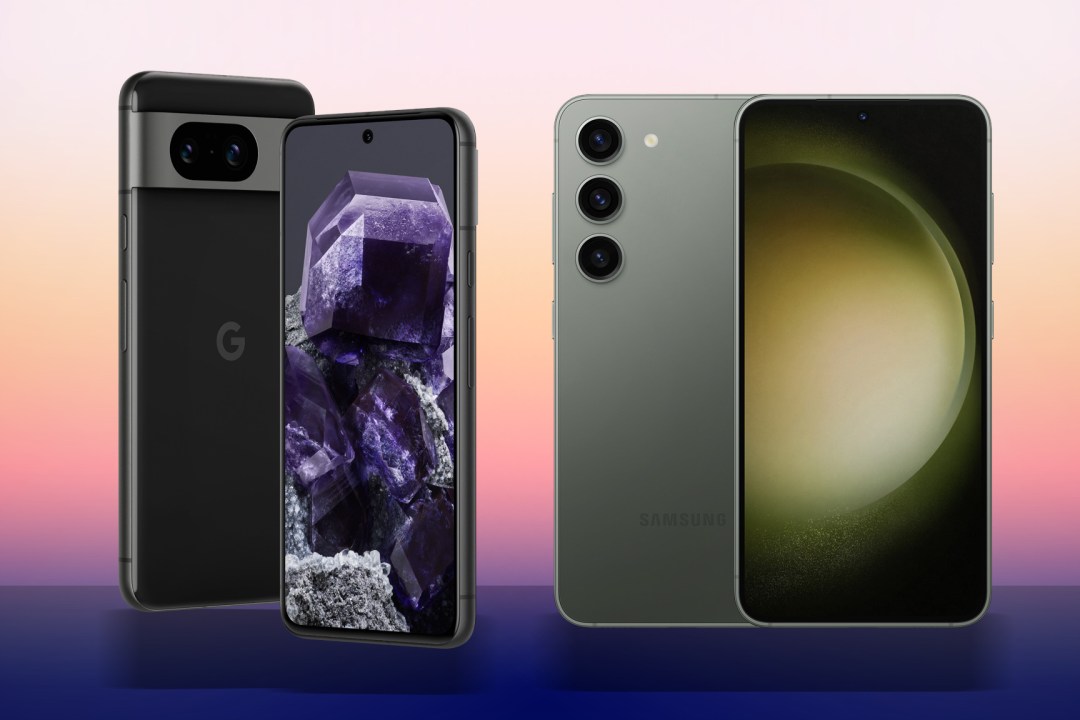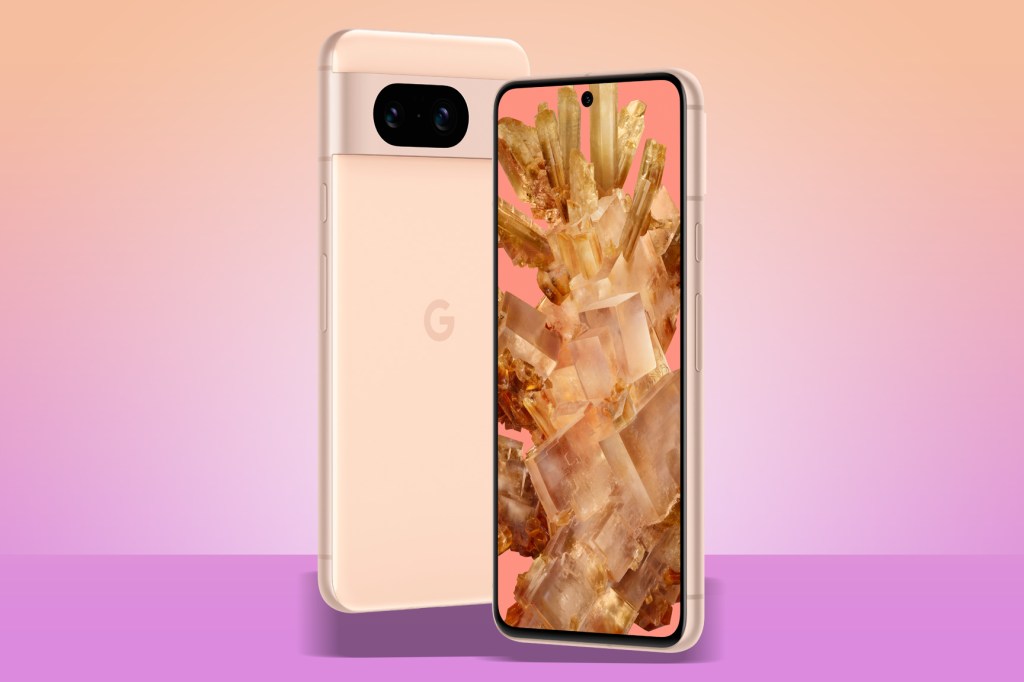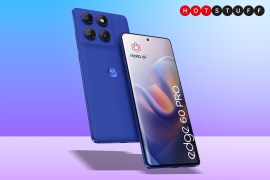Google Pixel 8 vs Samsung Galaxy S23: which is best?
Mainstream mobiles face off - does Google or Samsung come out on top?

With more options to pick from, those in the Android camp have a harder time picking out the best smartphone each year. Fortunately, you’ll usually find the same top names competing for top spot. And right now, it comes down to Samsung and Google. As the latest pair to go head-to-head, all eyes are on the Google Pixel 8 vs Samsung Galaxy S23 to see which is more deserving of your cash.
Samsung’s $799/£849 flagship has been around for longer, but doesn’t skimp on camera hardware and delivers outstanding performance. The $699/£699 Pixel 8 is more interested in AI, makes a bigger design leap forward than its rival, and arguably does more with less on the photography front. But which is the better option to splurge out on? We can’t pick a definitive winner until we’ve reviewed them both, but there’s already plenty to compare on paper.
Design & build: curvy or samey


Samsung settled on a consistent design for its smartphones this year, with the Galaxy S23 borrowing its individual camera lens elements from the pricer S23 Ultra. It’s still a fairly compact handset, with a 6.1in display protected by Gorilla Glass Victus 2 glass for the first time in a Samsung phone. The glass and metal sandwich is available in Phantom Black, Green, Cream and Lavender colours – plus Graphite and Lime options if you buy directly from Samsung’s web store.
Google was more willing to mix things up for the Pixel 8, giving the handset a curvier makeover rounded corners. At 6.2in it’s slightly larger than the S23, but not by a lot. It is a tad smaller than the previous Pixel 7, so points to Google for going after small phone lovers. The rear glass keeps its glossy finish, so should show fingerprint smudges just as much as the Pixel 7 did. The stainless steel rear camera shelf remains, with the two lenses (rather than three in the Pixel 8 Pro) in the same position besides the flash. You can have one in Rose, Hazel, or Obsidian colours.
Both phones are IP68 dust and water resistant. Both have in-display fingerprint sensors. Neither has a 3.5mm headphone port, or supports microSD expandable storage.
Screens: shining differences


Both the Pixel 8 and Galaxy S23 have vibrant, colourful AMOLED displays with epic amounts of contrast. Both can manage 120Hz high refresh rates, but miss out on the 1-120Hz adaptive tech found in their bigger brothers.
While the Galaxy S23 packs a 2340×1080 resolution, the Pixel 8 has more pixels at 2400×1080. The size difference means they effectively have the same pixel density, however. Both devices support HDR video playback.
Brightness is where the gap widens. The S23 can deliver 1200 nits in High Brightness Mode (HBM) and as much as 1750 nits peak, which is plenty for outdoor use. The Pixel 8 usually promises 1400 nits for HDR content, but can crank to 2000 nits in HBM for clearer outdoor use. If you’re someone that heads outside a lot, it should in theory will be much easier on your peepers.
Cameras: evenly matched competitors


Samsung packed three separate snappers into the Galaxy S23, headlined by a 50MP main sensor. This sits beside a 12MP ultrawide and 10MP telephoto lens (good for 3x optical zoom), just like the previous generation. It’s a fantastic performer in most lighting conditions. While it regularly uses pixel-binning to output 12MP shots, you can toggle a setting to wind up with full 50MP shots.
Google has gone for a 50MP main sensor with f/1.68 lens, optical image stabilisation, multi-directional PDAF and laser assistance. There’s also a similar 12MP ultrawide with an f/2.2 aperture for wider shots. It lacks a third camera lens, which is only reserved for the Pro model. But, on the Pixel side, you get some software upgrades with new features. There’s now Best Take, which takes multiple frames every time you press the shutter button and stitches them together so that everyone in the frame is looking their best.
As to which takes the best photos? That’ll have to wait until a full review. Both handsets are pretty evenly matched in terms of hardware, but Google’s image processing goes an awful long way.
Performance & battery: high-performer or long-laster
Google says the Pixel 8’s Tensor G3 processor is a big deal. It’s made on a 4nm process, which should make it more power efficient than last year’s chip, and has swapped to a 1+4+4 core layout that promises more oomph in apps and games. Naturally, it’s still optimised for AI and machine learning, just like previous Pixel efforts. Paired with 8GB of RAM and either 128 or 256GB of storage, it should feel perfectly responsive for a 2023 flagship phone.
If benchmark scores are to be believed, though, Samsung will retain its performance edge – despite being many months older. That’s because it partnered with Qualcomm on a bespoke version of the Snapdragon 8 Gen 2 processor, which runs faster here than on any rival phone. It’s the yardstick with which all Android rivals are measured, with apps and games running all but flawlessly. Storage options start at 128GB and include a 256GB model if your budget is big enough. All versions have 8GB of RAM.
Battery-life is a big area of difference for these two handsets. Neither are particularly impressive, with both clocking well below 5000mAh. But the Pixel 8 packs a larger 4575mAh cell, while the Galaxy S23 is stuck with a measly 3900mAh. In our Galaxy S23 review, we found that the Samsung held its battery well – but you don’t want a more powerful device to feature a smaller powerhouse.
On the software front, thanks to a free Galaxy AI update, the S23 shares many of the more impressive newer AI features found on the Galaxy S24 and Pixel range. This includes plenty of translation features, including Google’s newer Circle to Search feature. It also includes generative AI editing tricks, such as removing, moving, or replacing unsightly objects in photos.
There’s little in it when it comes to wired charging speeds. The Pixel officially supports 30W over USB-C, while the S23 maxes out at 25W, but the capacity difference mean both take a similar time the mains for a full charge. Google claws things its way with wireless charging, managing 23W on a compatible charging pad to the Samsung’s 15W.
Google Pixel 8 vs Samsung Galaxy S23 initial verdict

At the time of writing, the Galaxy S23 is a proven entity. Samsung’s flagship smartphone takes outstanding photos, is seriously powerful, and packs an impressive display. It’s particularly pricey, but because it has done the rounds for the best part of ten months, there are tempting deals to be had when shopping around.
The Pixel 8, however, is more of an unknown. The Tensor G3 processor is meant to be more power efficient, but we’ll only know for sure if the previous generation’s battery and thermal issues have been resolved. Minor hardware upgrades aside, the camera focus has very much been on AI assistance and new software shooting modes.
Things are pretty evenly matched, and you’re making trade-offs whichever device you pick. Samsung’s handset is more powerful, but Google’s lasts longer. The Galaxy has the camera hardware, but the Pixel’s image processing is more advanced. So let’s boil it down to price. The Pixel 8 comes in for hundreds less – making it a more attractive offering overall. But whichever device you end up with, you won’t be disappointed.

